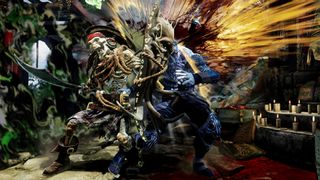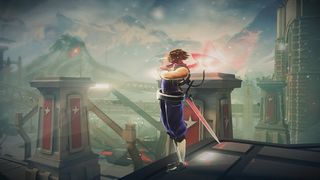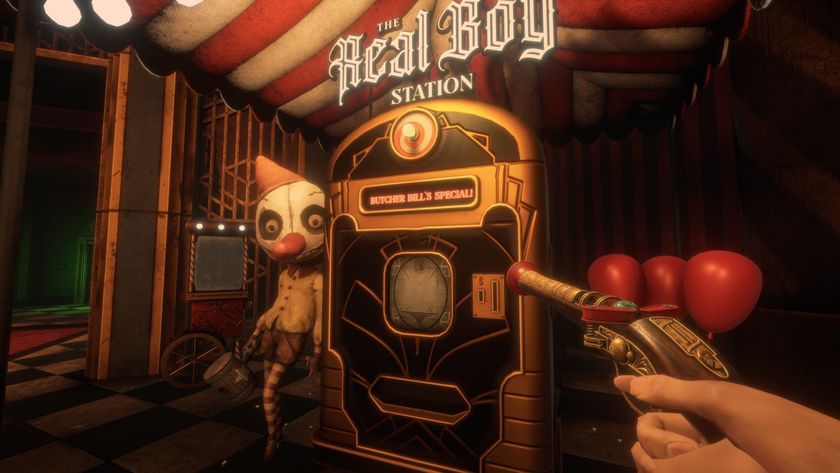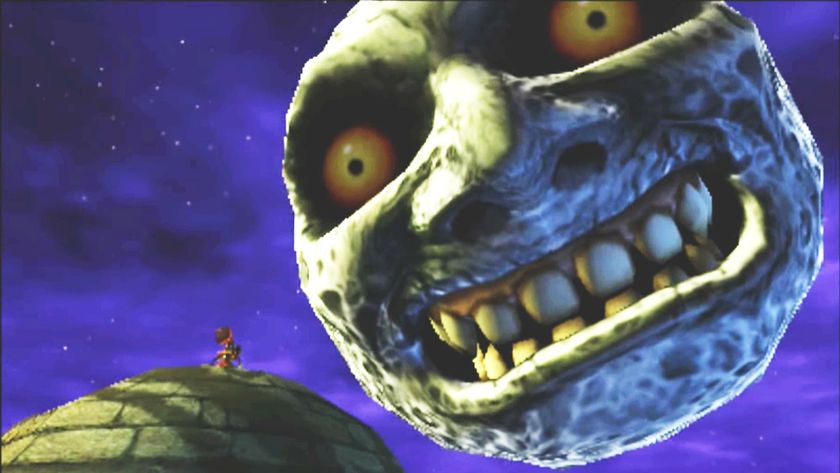What Double Helix can do for Amazon's venture into games

What is Amazon thinking? CVG News reports that the e-commerce giant has just acquired Double Helix Games, the developer behind the modern Killer Instinct and Strider reboots. Official word from Amazon is that this move is "part of our ongoing commitment to build innovative games for customers." Those with an ear to the games industry ground suspect that this acquisition has something to do with Amazon's rumored Android-based home console that supposedly in the works. But why Double Helix, and why now? My guess: to win over the gamers who might otherwise shun an Amazon console.
To its credit, picking up Double Helix does distinguish Amazon from its Android console competitors: the floundering Ouya, and Mad Catz's still-in-the-works Mojo. Getting so-called core gamers onboard with an Android-based machine isn't an easy sell; people bought into the idea, as evidenced by Ouya's unbelievably successful Kickstarter, but the finished product garnered the kind of tepid reaction usually reserved for lukewarm, watered-down oatmeal.

Coming up with a list of the best Ouya games is incredibly difficult--I know, because I tried (and only barely succeeded). Kickstarter backers got their Ouyas almost a year ago, and so far, the only Ouya exclusive to command a modicum anyone's attention is TowerFall, the amazingly chaotic and enjoyable archery melee. Unfortunately for the Ouya, the new and improved TowerFall Ascension is headed to PC and PS4 this year, which could be the death knell for Android's first living room console. Not only that--developers are being scared off by Ouya's questionable business practices, so don't expect a TowerFall replacement any time soon.
Are Amazon's console credentials any more legitimate? It did make a bid for a piece of the gaming pie with the Kindle Fire, which is capable of running apps (though none have been exclusive to the Kindle). Currently, the body of work belonging to Amazon Game Studios is one game from 2012: Air Patriots, a single-screen tower defense game. Yes, it's maintained just over a 4-out-of-5 star rating on the Google apps store, and tower defense makes for a good bit of methodically paced fun. But trying to get gamers like you and me interested in what's essentially a Flash game for tablets is a fool's errand.

However, while Amazon's interactive offerings on Kindle Fire have been weak, Double Helix has been making quite the name for itself. Before 2013, you'd be forgiven for not knowing about the studio, considering they made such mediocre movie tie-ins as Green Lantern: Rise of the Manhunters and G.I. Joe: The Rise of Cobra. But Double Helix must've hit their stride after cranking out the licensed Battleship game, because Killer Instinct had a pretty stellar debut on Xbox One. Not satisfied with making just one exceptional game, Double Helix showed off the promising Strider reboot, which looks to do justice to Capcom's classic cyberninja. These are the kinds of games you and I get excited about; in the case of Killer Instinct, it may very well have been a system seller. That kind of fresh-in-our-minds clout could go a long way in helping Amazon grab the attention of your average gamer.
So while the concept of Amazon snatching up a next-gen developer initially seems bizarre, perhaps there's a method to the madness. Double Helix isn't exactly a triple-A third-party developer, but its recent efforts have undoubtedly shown promise. If Double Helix can craft games that appeal to the core even without established IPs, then Amazon would've picked up a huge asset in selling gamers on the Android platform. If not, well… Amazon's got billions of dollars to fall back on.
Sign up to the 12DOVE Newsletter
Weekly digests, tales from the communities you love, and more
Lucas Sullivan is the former US Managing Editor of 12DOVE. Lucas spent seven years working for GR, starting as an Associate Editor in 2012 before climbing the ranks. He left us in 2019 to pursue a career path on the other side of the fence, joining 2K Games as a Global Content Manager. Lucas doesn't get to write about games like Borderlands and Mafia anymore, but he does get to help make and market them.

OG BioShock director recommends one very BioShock-y Steam Next Fest game that already has 500 "very positive" reviews

Despite Zelda: Majora's Mask basically being a horror game, one of its key devs didn't think its creepiest features were scary at all: "People on the team were like 'whoa!'"
Most Popular






